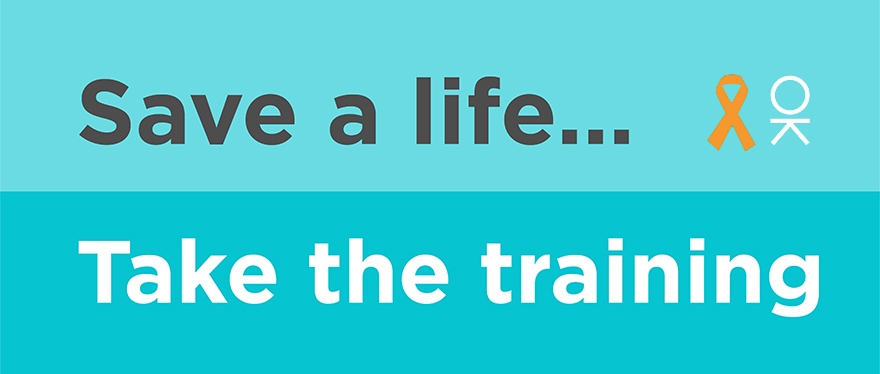
More than 135,000 Londoners have accessed suicide prevention training to play their part in supporting others


- Surge in participants during and after lockdown shows Londoners are looking out for each other
- Training will help break the stigma of talking about mental health, suicidal thoughts and bereavement
A year-long campaign launched last year by The Mayor of London, Sadiq Khan, to encourage Londoners access suicide prevention training has far exceeded its goal.
In September 2019, to mark World Suicide Prevention Day, a citywide Zero Suicide London campaign set a goal of encouraging 100,000 Londoners to access free online suicide prevention training within twelve months. Positively, more than 135,000 Londoners, including the Mayor, have now completed the suicide prevention training, helping to play their part in saving lives and looking out for other Londoners.
Developed by the Zero Suicide Alliance, the free, online training takes around 20 minutes and is designed to show how to have a direct and honest conversation about suicide and mental health with friends and family.
The #ZeroSuicideLDN campaign, managed by Thrive LDN – the citywide social movement to improve the mental health and wellbeing of all Londoners – is also helping to break the stigma of talking about mental health, suicidal thoughts and bereavement, working towards a shared goal of becoming a ‘zero suicide city’. The approach follows research that shows talking honestly and openly about suicide has helped to save lives.
To mark World Suicide Prevention Day 2020, on Thursday, 10 September 2020 at 11:00, a virtual panel discussion about suicide prevention approaches in London and a review of the campaign will be broadcast on the Thrive LDN website. Guest panellists are from The Zero Suicide Alliance, the Molly Rose Foundation, PAPYRUS, and The Sunflower Project.
The Mayor of London, Sadiq Khan, said: “Suicide is a tragedy, both for those who take their own life and for the loved ones they leave behind, and I am committed to doing everything in my power to reduce the number of suicides in our city.
“That is why I am proud many Londoners have joined me in taking Zero Suicide London’s online suicide prevention training to help play their part in saving lives and to let those who may be struggling know they are not alone.
“These challenging times are taking a toll on many people’s wellbeing so I encourage every Londoner to consider taking the training. Now, more than ever, it is vital we come together to break the stigma surrounding suicide and mental health.”
Martin Machray, Joint Chief Nurse, NHS England & Improvement (London region), said: “As someone who has lost a loved one from suicide, this is a hugely important issue for me. Some people will find the challenges of COVID-19 harder than others because of their health, where they live or the impact on their financial situation. It has never been more important for each of us to think and talk more about mental health and wellbeing, and to seek help when it is needed. With all of London working together, we can look out for one another, spot the signs and be prepared to save a life. There is support available for whatever you are going through.”
Dr Geraldine Strathdee, co-founder of Zero Suicide Alliance, said: ““The alliance is ultimately concerned with improving support for people contemplating suicide by raising awareness of and promoting free suicide prevention training which is accessible to all. Everyone, everywhere, in every part of our communities can take action. I’m delighted the alliance’s partnership with the Mayor of London and Thrive LDN has meant that so many Londoners have learnt how to best spot the signs that any of our friends, colleagues or loved ones may be in crisis, and now have the skills and confidence to support them seek help.”
Philip Glanville, the Mayor of Hackney and co-lead of Thrive LDN, said: “It is heartening to know that so many Londoners have now taken the online suicide prevention training. A huge number of people now have the skills and confidence needed to better identify suicidal thoughts and behaviour.
“However, we can’t afford to be complacent, because of Covid-19 the challenges are even greater and it is only through continued efforts to support whole communities to come together and address the causes of poor mental health that we can meet our shared goal of making the capital a ‘zero suicide’ city.”
Dr Phil Moore, co-chair of the Thrive LDN Suicide Prevention Group and chair of the NHSCC Mental Health Commissioners Network, said: “We need to continue to be innovative in our approach to suicide prevention in London. Together, by having more open and honest conversations we can support each other and move closer to achieving our ultimate ambition of becoming a zero-suicide city. By thinking and talking more about our mental health, we will help each other to get through this crisis.”
To find out more about these resources and the suicide prevention training, visit www.thriveldn.co.uk/zerosuicideldn.